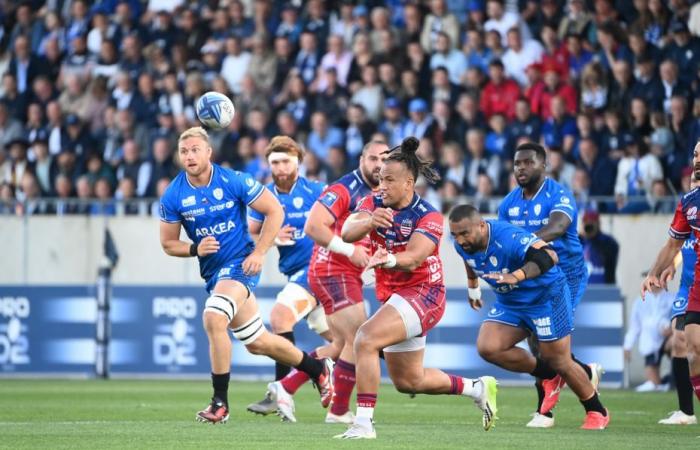
While Béziers Rugby player Taleta Tupuola must be tried on Wednesday November 13, 2024, for domestic violence, sports sociologist Seghir Lazri looks back on the impact of rugby and the values it conveys on certain behaviors.
Company
From daily life to major issues, discover the subjects that make up local society, such as justice, education, health and family.
France Télévisions uses your email address to send you the “Society” newsletter. You can unsubscribe at any time via the link at the bottom of this newsletter. Our privacy policy
The Béziers rugby club is going through a crisis. Le joueur, Growing Talent, three-quarter center of New Zealand origin, will be judged on Wednesday November 13, 2024 for violence against his wife. Mis on foot by decision of Robert Ménard, mayor of Béziers and owner of the club, he is suspected of violence against his wife on October 5. Violence which would have resulted in six days of incapacity for work for his partner.
For sports sociologist Seghir Lazri, awareness must be raised in this sport where violence against women is more present than we think, between domestic violence which can lead to femicide and attacks during the third half. .
Does this sport encourage violent behavior? “Rugby is a combat sport. It offers a form of masculinity which is also essential in the relationships that the players have,” underlines Seghir Lazri, author of the thesis Being racialized as an oval published at Iris EHESS. “It’s a legacy of the history of rugby. Masculinity reigns in rugby”. Indeed, this practice, born in England in the middle of the 19th century, aimed to instill in boys from upper social classes ways of thinking and being specific to their caste.
In this universe full of virility and where the cult of the body is omnipresent, women have a special place in the lives of rugby players. “They adapt to the lifestyle of their spouses. They will make life and professional choices based on them, so it creates a feeling of domination,” explains the sociologist.
- -




